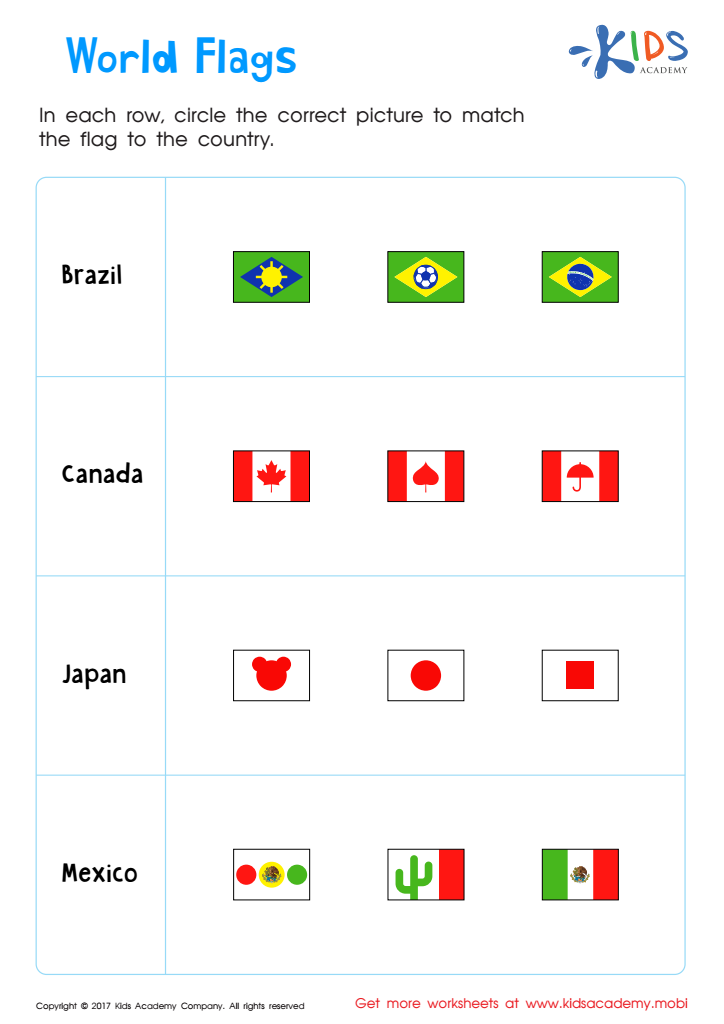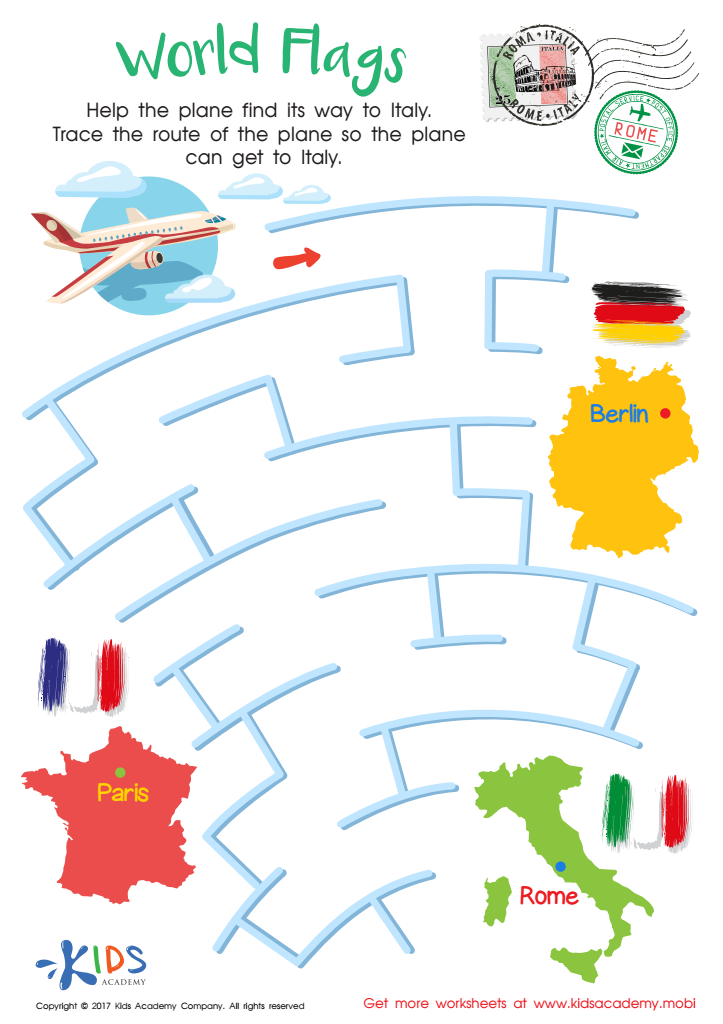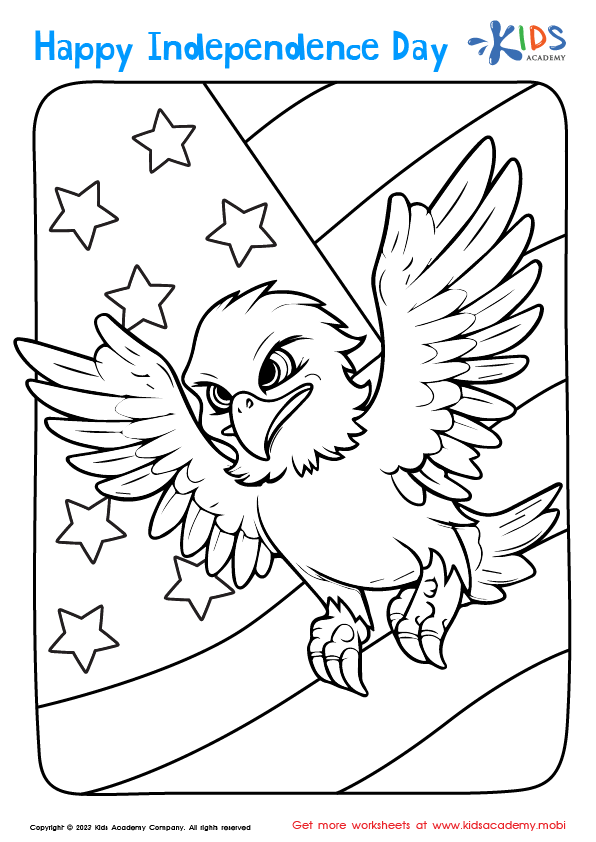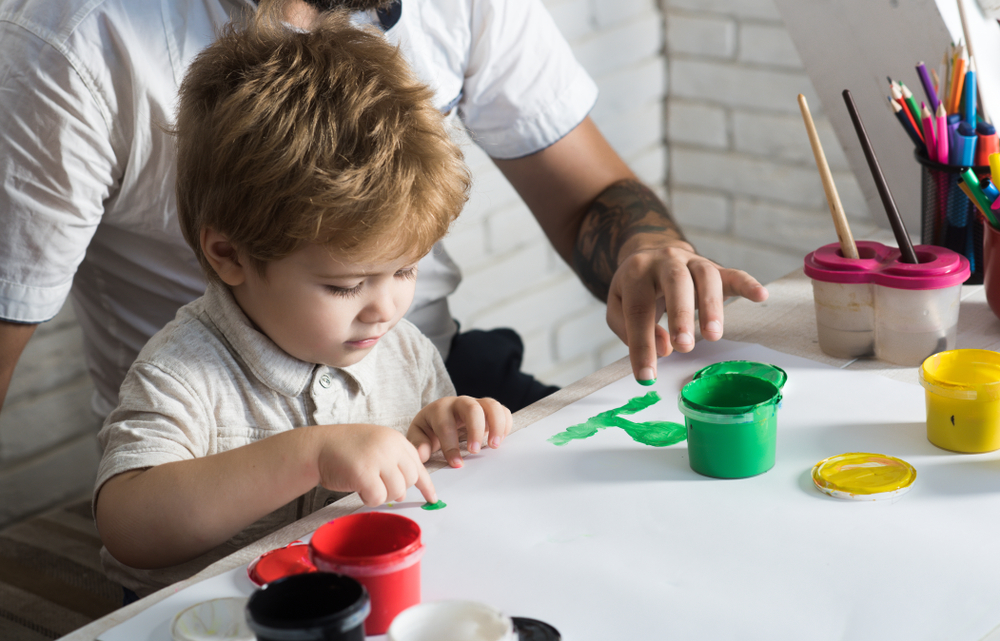Cultural Understanding Worksheets for Ages 4-6
3 filtered results
-
From - To
Our "Cultural Understanding Worksheets for Ages 4-6" offer a fun and exciting way to introduce young learners to diverse cultures and traditions. These engaging materials help children develop empathy and respect while exploring different cultural practices, languages, and holidays. Perfect for classrooms and homeschooling, each worksheet incorporates age-appropriate activities, illustrations, and interactive elements designed to captivate early learners. Enhance your child's global awareness right from the start with our thoughtfully-curated worksheets that foster open-mindedness and a love for diversity in young hearts and minds. Discover the world one activity at a time!


World Flags Printable


World Flags Maze Worksheet
Cultural understanding is essential for children ages 4-6 as it lays the foundation for empathy, respect, and open-mindedness in their early developmental years. At this impressionable age, kids are naturally curious and eager to learn about the world around them. By exposing them to diverse cultures early on, parents and teachers help children appreciate both the differences and similarities that make individuals unique.
For young children, understanding various cultural practices, languages, and traditions helps break down stereotypes and eliminate prejudice before it can take root. It's crucial for fostering an inclusive environment where every child feels valued and accepted, regardless of their background. This exposure also boosts cognitive development and social skills, as children learn to navigate and appreciate different worldviews and forms of expression.
Moreover, kids who grow up with a broad understanding of different cultures are better equipped to thrive in a globalized world. They develop strong communication skills and cultural competency, invaluable traits for future personal and professional interactions.
Parents and teachers play a pivotal role in introducing cultural understanding through books, activities, music, and inclusive celebrations of cultural holidays. By doing so, they invest in creating well-rounded, empathetic, and socially responsible individuals who will contribute positively to a diverse and interconnected world.

 Assign to My Students
Assign to My Students





















